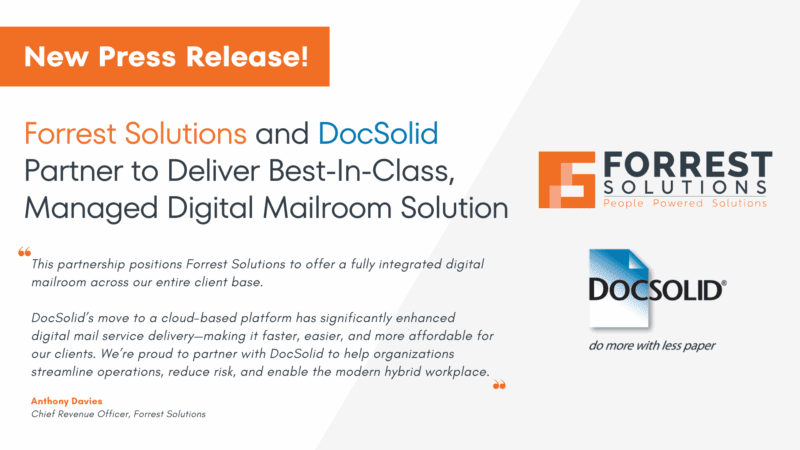
Outsourcing and the Difference Between Service and Hospitality
By Anthony Davies
This article originally appeared in Law.com here
Law firms large and small have been outsourcing onsite office services for many years. From the mailroom and reprographics center to records management and word processing, there is an outsourcing provider ready to take these services off firms’ hands. Over the past decade or so, we’ve seen outsourcing on the rise as firms take steps to address a changing market for law firm services, including
- Increasing reliance on allied professionals and specialists
- Expanding partnerships and the outsourcing of non-lawyer services
- Creating “captive” subsidiaries for legal related services
- Expanding the use of technology to improve legal work processes
Here’s the thing, overall satisfaction rate from outsourcing agreements has hovered around half.[1] This trend held steady, in fact, every year prior to the pandemic. Though the numbers may have varied by a percentage point here are there, in general, slightly less than half of both large and small firms were satisfied with their outsourcing engagements.
Today we see outsourcing accelerating as the pandemic has served to highlight the traditional benefits of outsourcing: cost reduction, flexibility, expertise and efficiency.[2] But providers need to do something more to increase satisfaction rates among their law firm clients.
Efficient, Cost-Effective Service is Table Stakes
Historically, outsourcing providers were selected on criteria such as optimized staffing levels, service level agreements, ticket closure time, and the use of technology to streamline, track and enhance work product. Today, these criteria are now table stakes. Staffing coverage is formulaic, technology is widely available, and traditional mail and reprographics volumes have reduced dramatically.
Providers that solely focus on this aspect of service are racing to the bottom of what is possible in outsourcing. The market is looking for something more to differentiate between providers.
In the last 12 months, we’ve seen a shift in the selection criteria evolve as law firms look for more help solving an increasingly complex set of workplace challenges linked to hybrid working and a successful Return to Office (RTO).
Specifically, law firms are challenged to bring attorneys back into the office. Lawyers want to work from home (WFH). In fact, young lawyers feel so strongly about remote work that 44% of them would leave their current jobs for a greater ability to work remotely elsewhere, according to a new report by the ABA, [3] and the firms that mandate any kind of return to the office, those firms experienced double the turnover rate of firms that did not[4].
There are benefits to WFH. Remote work has increased lawyers’ ability to deal with biases and focus on mental health–and this was particularly true for women lawyers, 56% of whom reported that remote work actually increased their ability to balance work and family obligations.[5] Add on top of this that the two years when firms’ doors were shuttered were two of the most profitable years on record[6] for many firms, and the benefits to WFH look pretty good.
But there are downsides. Many of the attorneys in the same ABA survey reported a decrease in professional networking and quality relationships with co-workers—and this is exactly what keeps law firm leaders up at night. In fact, the 2022 Citi Hildebrandt Client Advisory found as well that many firms believe the remote environment has damaged personal relationships at work and the sense of belonging amongst many lawyers–and may be a contributor to the ease with which lawyers, from partners to associates, are moving firms.
Since mandates don’t work, law firms find themselves being in the position of enticing attorneys back into the office. To do this, firms have to make the office different from home—and to be sure, that make or break differentiating factor is not going to be measured in the seconds of ticket closure time.
To entice attorneys back into the office is going to require more than table stakes service. It’s going to require hospitality—and outsourcing providers are playing an increasingly important role in delivering of these services.
How Hospitality Differentiates from Service
Service is what you do to someone, hospitality is how you make them feel. The dictionary definition of hospitality is, “The friendly and generous reception and entertainment of guests, visitors, or strangers.” As well as the obvious food and social events that boost attendance on a limited basis, the adoption of a ‘Ritz Carlton’ style hospitality approach to all office services is now seen as critical.
In other industries, this 5-star hospitality approach has been long integrated in leading brands. These global brands are creating immersive, authentic connections that support meaningful memorable moments in an effort to drive loyal behavior. This is one of the pillars of Ritz Carlton’s world-renowned service.
This is what firms increasingly are looking for: workplace experience, a high engagement, white-glove service that transforms your office into a destination. This white glove services provide high levels of attention, including tailored coffee and water choices, room escorting versus pointing, walking guests with umbrellas in inclement weather, restaurant recommendations and reservations, room temperature adjustments upon request and more.
This is how law firms and their outsourcing partners must create an ‘experience’ that is better than work from home and achieve the most challenge business obstacle firms face: enticing attorneys back to the office. Simply put, delivering services to agreed service levels isn’t going to accomplish that for the firm.
Conclusion: A Hospitality-First Approach
Everyone knows working in person has huge benefits to building culture, collaboration and mentoring junior members of the firm. And while most firms agree on a hybrid future, the extent to which this is predominantly remote work vs in person, is key to long term success.
Firms can attract professionals back with workplace experience and significantly increase their satisfaction with their outsourcing providers at the same time—with a hospitality-first approach. This is how outsourcing providers—rather than race to the bottom of a commoditized service– will play a critical role in helping firms transition successfully to hybrid operations and build a new culture that attracts and retains their professionals in the office, and law firms move forward into the future.
[1] Altman Weil Law Firms in Transition 2019
[2] Deloitte 2021 Shared Services and Outsourcing Report
[3] https://www.abajournal.com/web/article/new-aba-report-highlights-lasting-shifts-in-practice-of-law-and-workplace-culture
[4] 2022 Thomson Reuters State of the Legal Market
[5] Ibid
[6] American Lawyer Am Law 100/200 rankings 2022





